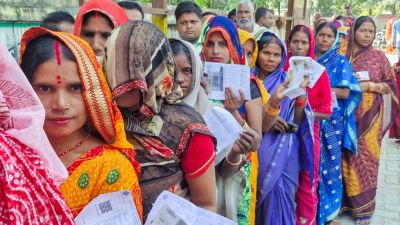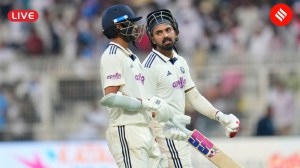When the music’s over, don’t just turn off the lights
Will there be any eager, inspired, onlookers at Satpal’s akhada in the Chhatrasal Stadium next month?

Will there be any eager, inspired, onlookers at Satpal’s akhada in the Chhatrasal Stadium next month? Will OB vans be parked outside Bhiwani Boxing Club after a week? How soon will India stop thinking about Abhinav Bindra, who bravely declined to accept the sudden attention being showered on him as a return for the months he had spent locked up in the private shooting-range in his plush basement?
Will those who’re screaming about India’s awakening at the Olympics, linking the improvement on the medals table as a sign of the country’s rising status in the world, look behind the success stories to realise that Indian sport is not in safe hands? Will they accept that the medals have been won only by individual effort — a laconic shooter who hardly needed any support from the government, a boxer who dreamed in a small club in rural Haryana, and a wrestler who shared a room with 19 others, unfazed by mosquito bites and grimy humidity?
Every four years, India wakes up to the truth that it is once again entering the Olympic Games not certain of a single medal. After a fortnight of planned lamentation, which turns into exultation when that accidental medal does come along, we wait to repeat the routine at the next Olympics. It’s a good way to live. Cozy, convenient. When you expect nothing, you usually end up with something. So, the medal secure, we return to obsessing about cricket, and life goes on.
This time, however, India has a problem on its hands. The ignored, oppressed athletes, who get no returns for their efforts, have managed to come back with more than that one face-saving medal. This time, there are three heroes to celebrate, three idols to shower with money and free railway passes. This time, there is a danger that the country will really start caring.
If that happens, the comfortable officials, who these one-off accidents suit just fine, may actually have to do something to ensure a repeat. They may have to finally put in some effort. They may not be able let things be and use the history of India’s failures as an argument whenever their own incompetence is discussed.
No matter how corrupt and opaque we say cricket administrators are, in comparison to the Indian Olympic Association (IOA) and its affiliates, they are a ray of sunlight. And the reason the cricket board has had to put systems in place — monitor age-group tournaments, scout for talent, make facilities easily available — is because the weight of expectations doesn’t let them rest too easily. The BCCI knows its smooth existence is directly proportional to how the Indian cricket team are performing. If they stop winning anything, India will react with anger, and the coffers will eventually dry up.
The IOA has never had such pressure. Its officials have enjoyed the good life — power, clout, government grants, official foreign trips — with no accountability. Who could ask for more?
But this system of slothfulness has gone on for too long. Now, we have the right to demand that things change. Along with text messages from the sports ministry, congratulating everyone from Abhinav Bindra to Rafael Nadal, we need to see something real.
Responsibility also lies with Indian sports fans, you and me, whose job is simply to stay interested. Let Bindra, Vijender and Sushil not go the Malleswari, Paes and Rathore way. Let us celebrate when they win and mourn when they lose. Let’s not treat their success as an accident, but as a sign that things can improve.
A big reason cricket managed to capitalise on the 1983 World Cup was because fans were constantly in touch with the sport. There are Test tours and one-day tournaments live on TV all year round to keep them connected.
Other sports, in contrast, come into focus three times in four years, at the Asian, Commonwealth and Olympic Games. The key to inspiring new athletes is to ensure that the link is not broken. Organise international boxing tournaments in India, get a shooting World Cup, and a wrestling championship to ensure newspaper and TV coverage.
In 1996, after Britain returned from Atlanta with one gold, it chalked out a plan to win 35 medals at Beijing 2008, and did. What plan is India making?


- 01
- 02
- 03
- 04
- 05




























